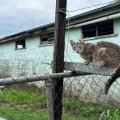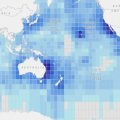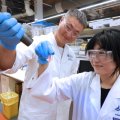The Australian Government’s new Excellence in Research for Australia process and other techniques for assessing the value and quality of research will be keenly debated at an international symposium in Brisbane next week (May 16 and 17).
Conference organiser Keith Webster said ERA and other research evaluation frameworks would have significant strategy implications for many organisations in coming years.
“University executives, researchers and policymakers are hungry for debate and information in this increasingly important field,” said Mr Webster, the chief librarian at The University of Queensland.
“ERA has been an enormous step forward for everyone connected with research in Australia, and the depth, breadth and scope of the information it has produced for the first time this year about the quality of Australian research is truly astounding.
“There is genuine fascination among the research and academic communities about how the process works, and how it can best be used to influence policy and to drive discovery beyond current horizons.”
UQ, The University of Western Australia and Thomson Reuters, provider of information solutions for professionals and businesses, will host the two-day symposium at UQ’s St Lucia campus in Brisbane.
One of three keynote speakers, Dr Steven Wooding, the UK-based research leader of the RAND Foundation Europe, will speak on evaluating medical research. Dr Wooding also co-directs the Department of Health Policy Research in Science and Medicine Unit at RAND Europe and has worked for the UK Medical Research Council.
Professor Robin Batterham, president of the Australian Academy of Technological Sciences and Engineering, will present ATSE’s perspective on ERA, particularly its role in the context of innovation. Professor Batterham was Australia’s chief scientist (1999-2005) and is currently Kernot Professor of Engineering at the University of Melbourne.
Philip Noonan, the director general of IP Australia, will speak on the value of patent information to universities.
Other speakers and panellists include:
• Andrew Calder, director of Research Performance and Analysis, Australian Research Council
• Professor Robert Tijssen, Leiden University, The Netherlands, and member of the editorial (advisory) board of the International Journals Research Evaluation and Scientometrics
• Tracy Henderson, manager of the Impact 2020 Project, CSIRO, Australia
• Professor John Hattie, director of the Melbourne Educational Research Institutes, University of Melbourne
It will be the second International Symposium on Metrics-Based Research Evaluation; the first was held at UQ in April 2009.
Jeroen Prinsen, senior director, Australia and New Zealand, Thomson Reuters, said the 2009 symposium highlighted the importance of institutions having good synergy between their libraries and research offices.
“This year, the symposium will again provide a valuable forum for the research management and librarian communities to share views on best practices in research evaluation, and to address the larger issues of how to evaluate the impact of research on society and economies,” Mr Prinsen said.
“Thomson Reuters is extremely pleased to host this symposium with two of Australia’s leading universities.
“We are committed to supporting the research efforts of Australian and New Zealand communities and facilitating their collaboration with peers in Asia-Pacific and the rest of the world.”
UQ’s deputy vice-chancellor (research), Professor Max Lu, said UQ had developed its own evaluation measure for researchers, the Q-Index, and the university was at the forefront of the debate on research evaluation.
“The calibre of the speakers attending the symposium shows it will be a forum for an important and significant discussion among leaders in the research field,” Professor Lu said.
Professor Robyn Owens, Deputy Vice-Chancellor at UWA, concurred with Professor Lu.
“The best way to change something is to measure it,” she said.
“Researchers are now keenly aware that the fruits of their research efforts are available through international bibliometric databases, and increasingly they want to use social networks as a way of getting their results noticed and used by others.”
For information about the conference, click here
For attendance enquiries, please email carmen.martin@thomsonreuters.com
Media: Fiona Cameron, UQ Communications, +61 7 3346 7086, +61 7 (0) 407 113342
Janine McDonald, media manager, UWA, +61 8 6488 5563
Pamela Lim, Thomson Reuters, +65 6870 3212
.jpg)










